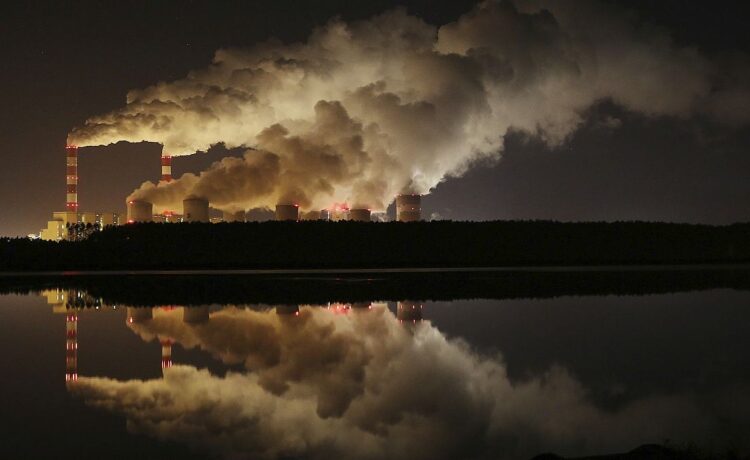MEPs have approved a sweeping reform of EU gas and electricity market regulations, with the aim of accelerating the clean energy transition, and including provisions that could further restrict Russia’s ability to continue selling natural gas to Europe.
MEPs have adopted a package of gas and electricity market reforms intended to bolster energy security, protect vulnerable consumers from wild price fluctuations as seen during the 2022 energy crisis, and create a new market for hydrogen, as well as allowing individual countries to restrict imports of Russian gas – with a more complete ban on the cards due to incoming restrictions imports with excessive upstream methane leakage.
With broad cross-party support for a political deal struck with EU governments in December, the European Parliament has approved measures such as promoting the production of biomethane, typically from waste organic matter, in line with the European Commission’s target of annual production of 35 billion cubic metres a year by 2030.
This, along with measures to promote the development of a hydrogen distribution network, are intended to decarbonise Europe’s energy system, and in particular heavy industry currently reliant on fossil fuels, and which cannot readily be electrified.
The legislation also aims to boost production of ‘low-carbon’ gas, which can refer to fuels produced from fossil gas in combination with carbon capture and storage (CCS) technology, and gives the European Commission a year to come up with a workable set of criteria to apply to such products.
In response to demands from a number of governments, the legislation also allows governments to unilaterally block imports of gas from Russia or Belarus, by limiting up-front bidding for capacity at entry points into the EU, which could be pipelines or liquefied natural gas (LNG) terminals. With resistance from heavily dependent countries like Hungary, Slovakia and Austria, there is no embargo on Russia gas imports, and LNG deliveries have increased since the invasion.
Esther Bollendorff a gas policy specialist with the NGO umbrella group Climate Action Network Europe noted the regulations failed to provide a framework for phasing out natural gas, but welcomed provisions aimed at decommissioning gas grids and prioritising hydrogen for key industrial sectors, rather than as a simple substitute for the fossil fuel.
“These encouraging provisions need to be monitored carefully, as EU policy makers have strongly pushed for hydrogen in recent years, with the risk of overexpanding the network which will raise prices for energy consumers,” Bollendorff said.
Electricity
The electricity market reforms included a number of responses to the soaring electricity bills seen during the energy crisis of 2022, when the EU’s market design meant the wholesale cost of a megawatt hour tracked the price of gas even when the grid was full of theoretically free renewable power. Consumers will have the right to choose a fixed price contract, and electricity providers will be prohibited from cutting off vulnerable consumers who cannot pay during times of high prices.
The fundamental electricity market pricing system remains in place, however, but the EU will be able to declare a regional or EU-wide electricity price crisis, allowing governments to temporarily cap prices for small businesses and energy intensive industries. The reform also extends to 2028 a derogation from a CO2 emissions limit for electricity generation that can receive state support through so-called capacity mechanisms, effectively allowing state subsidised coal- and gas-fired power plants.
The law also mandates the use of two-way contracts for difference in state support schemes for renewable and nuclear power, a response to the huge windfall profits made by some power companies. As now, a government would ensure a guaranteed minimum wholesale price by topping up revenue if it falls below a predetermined level. However, generators will in future have to pay money back to the state in the event the wholesale price exceeds the agreed ‘strike price’.
The German Green MEP Michael Bloss, who was his group’s lead negotiator on the reform, welcomed the consumer protection provisions, and new rules making it easier for citizens to benefit from plugging solar power and other distributed generation capacity into the grid. He rued, however, the lack of a broader reform to accelerate a switch to renewable power.
“All in all, the electricity market reform, which was widely labelled as a reorganisation of the European energy market, has ended up as a small reform with gifts for the coal and nuclear industries financed by taxpayers,” Bloss said.
Methane
The parliament also approved a new law setting limits on direct methane emissions from the oil, gas and coal sectors, and from biomethane once it is injected into the gas network. Natural gas is essentially a fossil form methane, a gas which in itself has a global warming potential many times that of the carbon dioxide produced when it is burnt, and is estimated to be behind nearly a quarter of ongoing global temperature rise.
Operators in the fossil fuels sectors covered by the law will have to submit a methane leak detection and repair programme within nine months and undertake a first leak detection and repair survey within a year. It also ban venting and flaring of methane, including from coal mines, by 2027. Imports will be subject to maximum ‘methane intensity’ limits from 2030.
Significantly, from the same year, new contracts for imports of gas into the EU will only be permitted where source producers are demonstrably subject to similarly rigorous monitoring, reporting and verification requirements – a move that would likely exclude gas from Russia, but could potentially affect imports from the US and other suppliers.
“Until now, methane was a blind spot in our climate policies,” said Pascal Canfin (France/Renew), parliamentary co-rapporteur for the file. “Now we are not only tackling domestic methane emissions but also those from our fossil fuels imports.”












